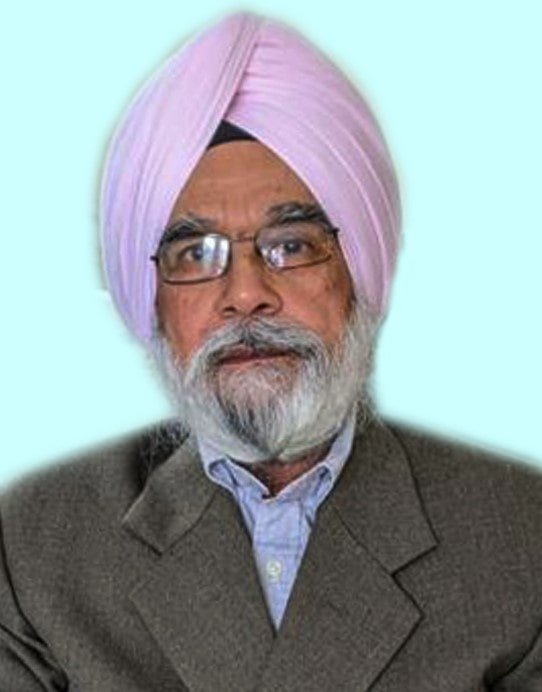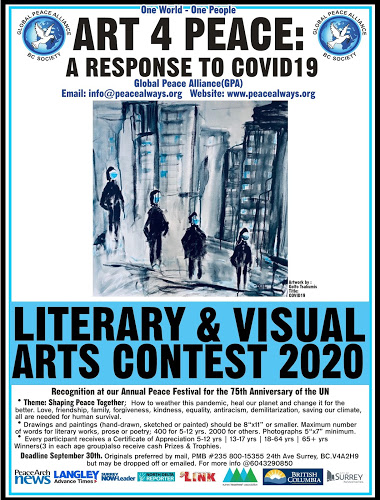DESIBUZZCanada
Events Listings
Dummy Post

International Day Of Yoga To Be Virtually Celebrated Saturday At 4pm

CANCELLED: Coronavirus Fears Kills Surrey’s Vaisakhi Day Parade

ADVERTISE WITH US: DESIBUZZCanada Is The Most Read South Asian Publication Online

SURREY LIBRARIES: Get Technology Help At Surrey Libraries

WALLY OPPAL: Surrey Police Transition Update On Feb. 26

GONE ARE THE DAYS - Feature Documentary Trailer

Technology Help At Surrey Libraries

Birding Walks

Plea Poetry/short Story : Youth Contest

International Folk Dancing Drop-in Sessions
PROMOTING PUNJABIYAT: The Positive Impact Of Social Media
- September 10, 2020


 By Ravinder Singh Sodhi
By Ravinder Singh Sodhi
The COVID crisis hasn’t only affected the economy of the different nations but has also altered the social life of the masses. The cultural, literary, as well as performing activities have all come to a standstill. However, during this, some literary, theatrical, and artistic groups innovated a unique way to use social media platforms for good causes. Zoom allows interactive meetings across the globe. Its popularity shot up, and millions are using it now. It is a welcome break for people tired of watching movies and the monotonous news cycle on the TV.
Punjabi Lokdhara (a Facebook group), Punjab Sangeet Natak Academy, Punjab Sahit Academy, and V Theatre (Virtual Theatre) web promote the items in their respective fields. Punjabi Lokdhara gets the credit of taking the initiative. Gursewak Singh Dhola, the organizer of this group, has done his homework thoroughly before starting it.
Forty-eight members of Punjabi Lokdhara came forward to speak on the topics of their choice. Some of them were: Impact of mobile and Social Media on youngsters; the responsibility of nurses; mother tongue; the relationship of two Punjabs; how to improve handwriting; the history of postal stamps; how to save the world from the coronavirus; and, our environment.
The love for Nature, the universality in Punjabi literature, and the role of theatre, etc. too were discussed. Though this program was only thirty-minutes, it has grown immensely popular among the members of the group.
Punjab Sangeet Natak Academy and V Theatre featured programs related to Punjabi Theatre. But the groups chalked out different outlines for their shows. Punjab Sangeet Natak Academy invited eminent theatre personalities from Punjab and the US, Canada, Australia, and other countries too. Kewal Dhaliwal, a graduate from the National School of Drama and the President of the Punjab Sangeet Natak Academy, hosted all the programs and interacted with the guests.
During the show, viewers even called in to ask questions. Rani Balbir Kaur, Pammi Bai, Sunita Dhir, Navnindra Bahel, Dr. Sahib Singh, Jagjeet Sareen, Rajinder Rozy, Hira Randhawa (Canada), among others, were there to talk about their stage lives. Upcoming theatre artists and directors learned how hard these veterans worked to establish themselves in the world of theatre. The group hasn’t only interacted with theatre people, but with artists of folklore, voice technicians, and musicians as well. Surjit Patar, the renowned Punjabi poet, gave a talk on the art of adaptation.
On the other hand, the V Theatre's shows were entirely different. In their presentations, there were two types of invites. The organizers requested a few famous stage artists or directors to send their recorded professional video clips. Then some playwright, stage actor or director was giving a talk on his play and in the end, the same artist was staging his small play. Most of the presentations were solo, while in a few three or more characters participated. Initially the program was for a week but has continued due to the overwhelming response.

Its organizers had named it as the ‘First International online Drama festival.’ In one of the episodes, an artist from Pakistan (Shaeedi Madeen) presented his short play. This group also invited many Punjabi artists, now living abroad. Gurinder Singh, Dr. Balwinder Singh, Hira Randhawa (Canada), Pawandeep (America), Dr. Jagdeep Sandhu, Dr. Inderjeet Kaur were its hosts.
Punjab Sahit Academy ’s contribution is also praiseworthy. Dr. Sarabjeet Kaur Sohal, president of this organization, and the convenor, Dr. Kuldeep Singh Deep, worked extremely hard to give a new dimension to the program. In forty episodes, fifty-two scholars of different fields expressed their views on thirty-five topics and sixty poets. They recited their poems. The organizers gave an equal chance to the young poets as well as writers.
Some other groups, like Collegiate Society, Sukriti, etc. also used this virtual technique to interact with literary and theatrical personalities. It doesn’t look like the pandemic is going to be over anytime soon. Hence, other groups must come forward to use this method to interact with experts in their respective fields and encourage the masses to join them.












